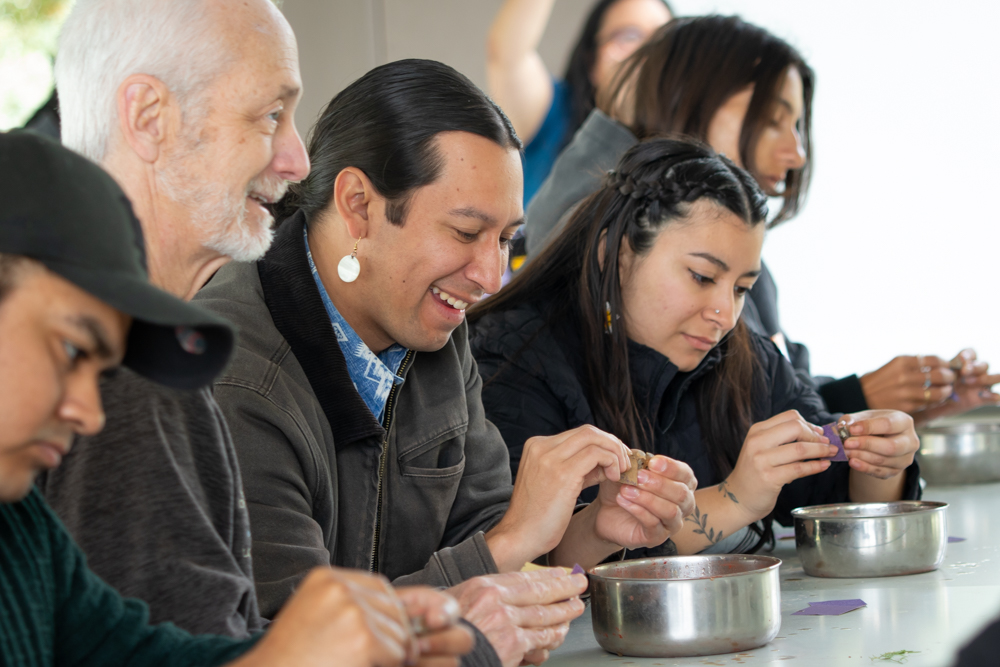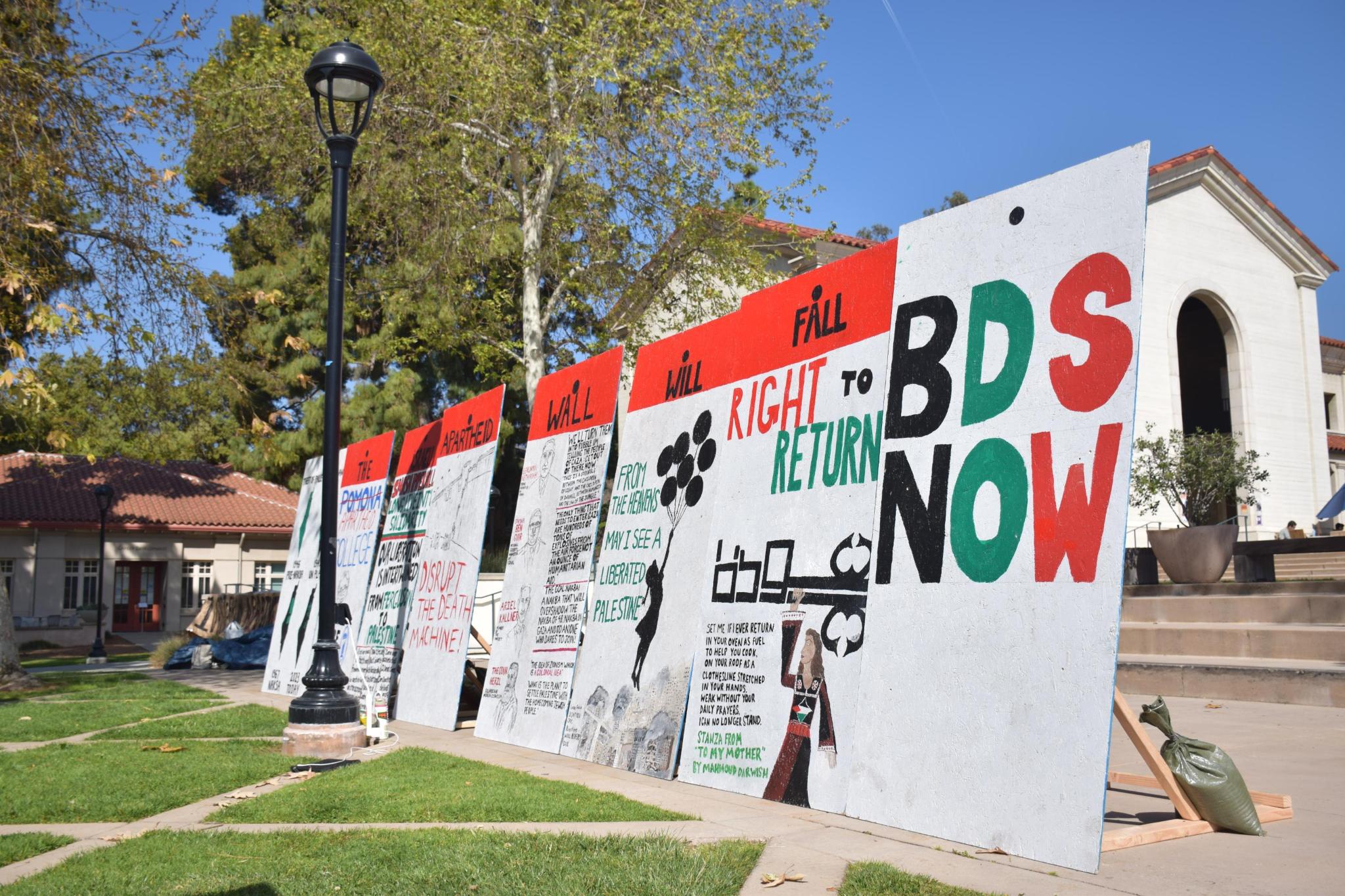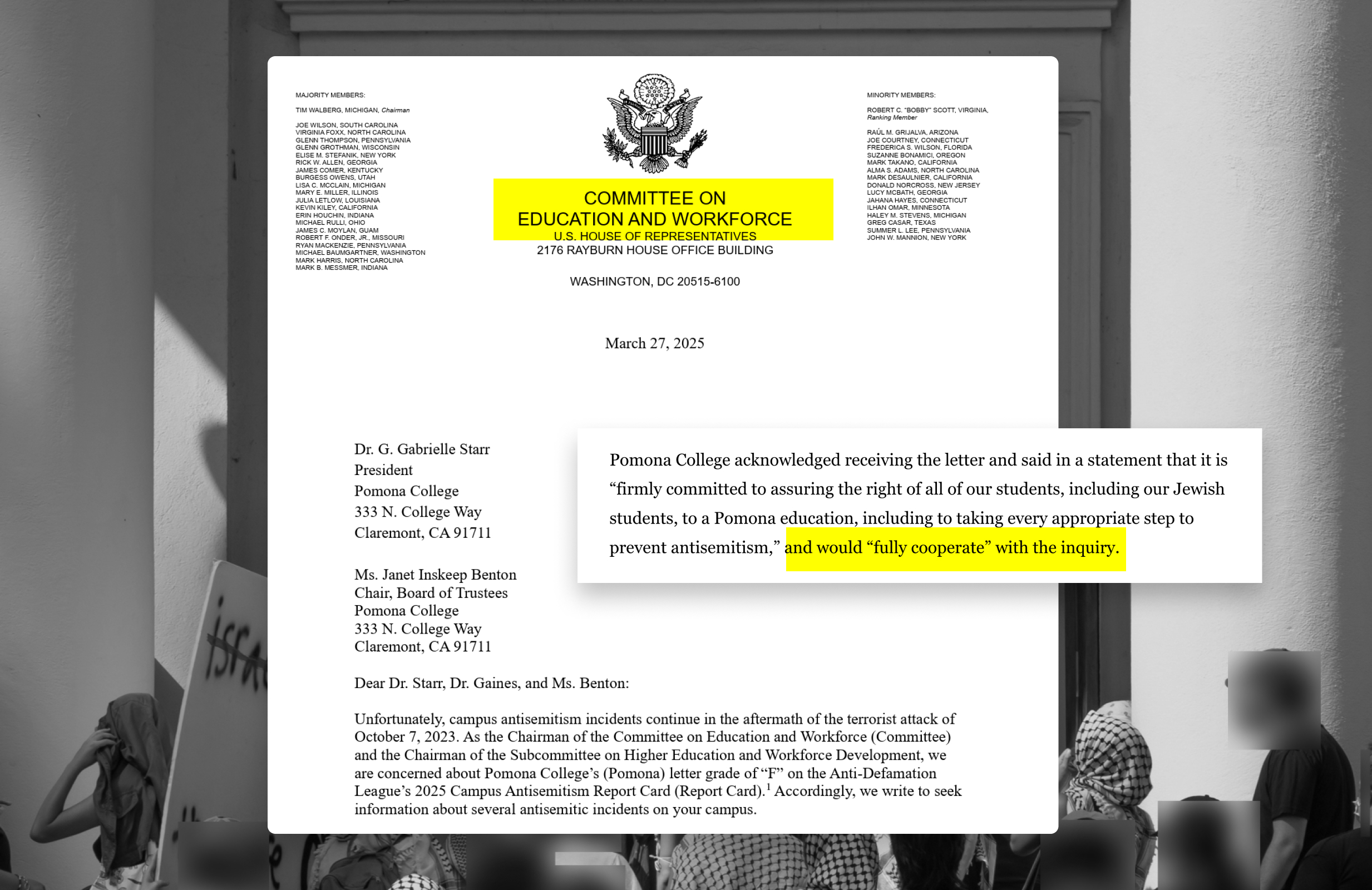
February 24, 2024
Wind talked about her research in occupied Haifa, where Pitzer College maintains a study abroad program.

On Feb. 6, 2024, more than 190 students and faculty gathered into Pitzer College’s Benson Auditorium and via Zoom for a panel with Dr. Maya Wind and Professor Robin DG Kelley, hosted by Claremont Students for Justice in Palestine. The panel was titled “Towers of Ivory and Steel,” after Wind’s upcoming book of the same name, which covers the process of scholasticide, or the suppression of academic freedom, in Israel.
Israeli Universities and the Genocide of Palestinians
Wind immediately reminded her audience that Israel had killed more than 240 Palestinian university faculty members in Gaza and over 4,800 university students. No Israeli academic institution has called for a ceasefire. Wind noted, “Israeli universities not only continue to sustain Israeli apartheid, but are currently actively supporting the genocide.” In her new book, Wind investigates Israeli universities’ complicity in the occupation of Palestine.
As she explained to the audience, Wind is a scholar of Israeli militarism who investigated universities in Israel. In her research, Wind found that Israeli universities are deeply embedded in the colonization of Palestine through a process that the state of Israel officially calls “Judaization,” or the effort to physically transform Palestine through Zionist settlements. In this process, universities become direct outposts of Zionist expansion, built to reinforce Israel’s military and intellectual control over colonized land.
Wind explained how Israeli universities partner with Israel’s military by sustaining industries like weapons manufacturing and aerospace engineering. They also “run tailored academic programs to train soldiers and security forces,” and students at the University of Haifa can even receive academic credit for enlisting in the Israeli Defense Forces (IDF).
Israeli universities also actively suppress Palestinian voices. Scholars who research historic Israeli violence are expelled from the Israeli Academy, said Wind.
Not only do these universities suppress academic research, but they prevent student organizing—students at the University of Haifa are only allowed to demonstrate for two assigned thirty-minute periods on Mondays and one on Wednesdays, said Wind. The professor also noted how students at Haifa are also encouraged to monitor each others’ social media and report Pro-Palestinian content.
Such suppression reinforces the importance of the Suspend Pitzer Haifa movement, which demands that Pitzer terminate the study abroad program at the Israeli university.
Academic Freedom and American Universities
Kelley opened with a land acknowledgement, noting how the Claremont Colleges reside on land stolen from the Tongva Gabrielino peoples, then argued that land acknowledgements should serve to support landback initiatives. Kelley drew parallels between the dispossession of Indigenous, Black, and Brown folks in the United States and the stories that Wind told about Israel.
“This is more than a conversation we’re having. What we’re here for is a campaign—an opportunity to mobilize support, both for the ongoing effort to suspend the study abroad program with Haifa and to get Pitzer and all the colleges to divest their holdings from occupation.”
If Palestinian students, or anybody critical of the Israeli state for that matter, cannot organize nor exist, the question becomes: “what is real academic freedom?”
He detailed how the United States sent the IDF ammunition to “blow up” faculty and students as well as destroy all universities in Gaza. In the occupied West Bank, the IDF also recently raided An-Najah University and arrested 25 students for a sit-in protest. In Jerusalem, a Palestinian professor received death threats for openly calling out Israel’s genocidal regime.
Looking to the Future
Kelley and Wind expressed their support for the Boycott, Divest, Sanction movement against Israel. Kelley said, “[BDS] is not a punitive movement. This is not about punishing Israelis. This is about accountability.” Kelley specifically voiced the importance of university divestment from Israel, saying that faculty, staff, and students must unite to “force our universities to stop investing in apartheid and war.”
Pitzer President Strom Thacker left the auditorium after Kelley called him out for failing to support divestment from Israeli apartheid. SJP representative Izzy Kramer SC’ 26 reflected that Thacker’s departure “as soon as he felt any slight discomfort” was “very cowardly.”
According to Kelley, the ultimate goal is to decolonize and then remake the university as a place of equal opportunity. The university should be a model of the society students want to create, and its radical reimagining is a reconstruction of the way society is governed as a whole.
“…there’s no such thing as end times, but there is such a thing as the end of the world in the beginning of a new one.”
Robin D.G. Kelley
A Q&A followed the panel. When a student asked about what the phrase “the end of the world” denotes in terms of collective action, Kelley responded succinctly: “there’s no such thing as end times, but there is such a thing as the end of the world in the beginning of a new one.”
When asked what they wanted their fellow students to take away from the event, Kramer hoped that students would find “a renewed sense of agency in the way that they can organize.”
“Maya Wind and Robin Kelley are both scholars that will define how the world will be recreated in the coming decades.” Kramer noted, “I think we’re really lucky to have learned from them.”


Affinity groups

Palestine

Palestine

Undercurrents reports on labor, Palestine liberation, prison abolition and other community organizing at and around the Claremont Colleges.

Issue 1 / Spring 2023
Setting the Standard
How Pomona workers won a historic $25 minimum wage; a new union in Claremont; Tony Hoang on organizing
Read issue 1